Again and again this year, scenes of racial injustice have played out before our eyes. African Americans insist that such incidents are nothing new; the difference is that now iPhones and body cameras record them for the world to see. Tragically, some of the resulting protests have led to violence.
In a year marked by division and hostility, I find myself going back to an event from 2015 that played out in Charleston, South Carolina. One warm evening a young white man with blond hair joined 12 African Americans in a Bible study at the historic Mother Emanuel church. He was the first white man to attend, and the others welcomed him gladly.
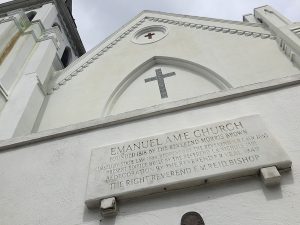
Dylann Roof sat through the hour-long lesson on Jesus’ parable of sowing the seed. As the group stood for a closing prayer, he reached into his fanny pack, pulled out a Glock .45 mm pistol and proceeded to shoot the Bible study members. Moving methodically from one table to the next, he fired at point-blank range, all the while yelling racial slurs and insults. “I have to do it,” he shouted. “You rape our women, and you are taking over our country. And you have to go!”
Dylann reloaded his automatic pistol five times. He stood over the victims, searching for any signs of life, and fired a total of 60 bullets into their bodies. Nine people died that night in an act that stunned the nation. The killer let one woman live, so she could tell the story of what happened, and two others somehow managed to survive.
Last year, the basketball player Stephen Curry and the actress Viola Davis joined together to produce a movie, Emanuel, about the church massacre. And a pastor named Anthony Thompson published a personal account: Called to Forgive. Thompson dedicated his book to the memory of the Emanuel Nine, including his wife Myra, the leader of the Bible study. For years Myra had studied to become a minister and that very night had finally received her preaching license. The fateful Bible study at Emanuel church was the first that she led—and the last.
To show support for Myra, Emanuel’s pastor—who also served as a state senator—skipped an important political meeting and joined the Bible study. He too was killed, and a short time later President Barack Obama would travel to Charleston to speak at his funeral. Who can forget the moving scene of a U. S. President trying to control his voice as he spontaneously led the singing of the hymn Amazing Grace.
In his book, Anthony Thompson tells of the person he used to be: an angry black man who worked for 25 years in the South Carolina Department of Parole and Probation, where he had been the butt of racial insults and discrimination. Along the way he met God, and his life turned around. Thompson quit his job, studied theology, and became a pastor. Now he was left without his wife of sixteen years, a victim of a hate crime.
Can I do it? he wondered. Can I, in the darkest remote closets of my all-too-human heart, forgive Dylann Roof for the cold-blooded murder of my beloved companion?
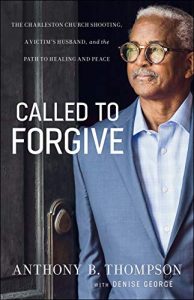 Over the next few days Rev. Thompson thought back to other scenes of forgiveness. The Amish people in Nickel Mines, Pennsylvania, who embraced the family of the man who had shot ten of their schoolchildren. Corrie ten Boom, who came to forgive the guard who had abused her in a Nazi concentration camp. Jesus’ disciple Stephen, who forgave his killers even as they were stoning him to death.
Over the next few days Rev. Thompson thought back to other scenes of forgiveness. The Amish people in Nickel Mines, Pennsylvania, who embraced the family of the man who had shot ten of their schoolchildren. Corrie ten Boom, who came to forgive the guard who had abused her in a Nazi concentration camp. Jesus’ disciple Stephen, who forgave his killers even as they were stoning him to death.
Two days after the murder, Anthony Thompson takes his two children to the bond hearing for Dylann Roof, who is present only on a video link from the jail. Dylann stands still, head down, eyes lowered, showing no expression, his hands cuffed behind his back.
At the hearing, the judge does something very unusual for a bond hearing. He reads out the names of each of the nine victims, one by one, and asks if any of their family members wish to speak. Suddenly Thompson hears his wife’s name called. He hadn’t even planned to attend the hearing until his children begged him to go. Now he finds himself walking to the podium, staring at Dylann Roof’s face on the flat-screen monitor.
“I forgive you,” he says to Dylann. “And my family forgives you. But we would like you to take this opportunity to repent. Repent. Confess. Give your life to the One who matters the most: Jesus Christ, so that he can change it and change your attitude.”
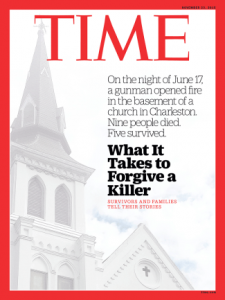
Rev. Thompson’s words get broadcast, and are quoted in newspaper headlines all over the world. Some of the victims’ families object—forgiveness is the furthest thing from their minds. But somehow that public act of forgiveness helps set a tone of reconciliation. Charleston authorities had braced for protests and riots in the shooting’s aftermath. They don’t happen. There are no arrests, no assaults, and no bloodshed.
Instead, more than 15,000 people of all colors and faiths join hands, creating a human chain that stretches for two miles across a bridge connecting Charleston to a nearby white community. At Myra Thompson’s funeral, the South Carolina Governor, Nikki Haley speaks. “Myra Thompson taught our state and country how to love,” she says. “And Anthony, you and your family taught our state and our country how to forgive.” A short time later, after decades of controversy, she orders that the Confederate flag be removed from the State House grounds.
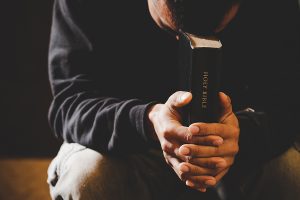 What happened in Charleston shows the power of forgiveness, the power of grace. In our own lives, each of us will face times—with a spouse, with children, or an employer, or neighbor—when we feel wronged. At such a time forgiveness may seem utterly impossible. Maybe it is, without supernatural help.
What happened in Charleston shows the power of forgiveness, the power of grace. In our own lives, each of us will face times—with a spouse, with children, or an employer, or neighbor—when we feel wronged. At such a time forgiveness may seem utterly impossible. Maybe it is, without supernatural help.
Listen to the words of Anthony Thompson. “I forgave Dylann because I was called to forgive. I believe forgiveness recognizes that the love of God is more powerful than white racist hatred. When I made the conscious decision and commitment to forgive Dylann Roof, my forgiveness meant that Dylann would not be allowed to control my life forever. My decision came from God’s strength, not from my human weakness.”

Subscribe here for Philip’s monthly blog:

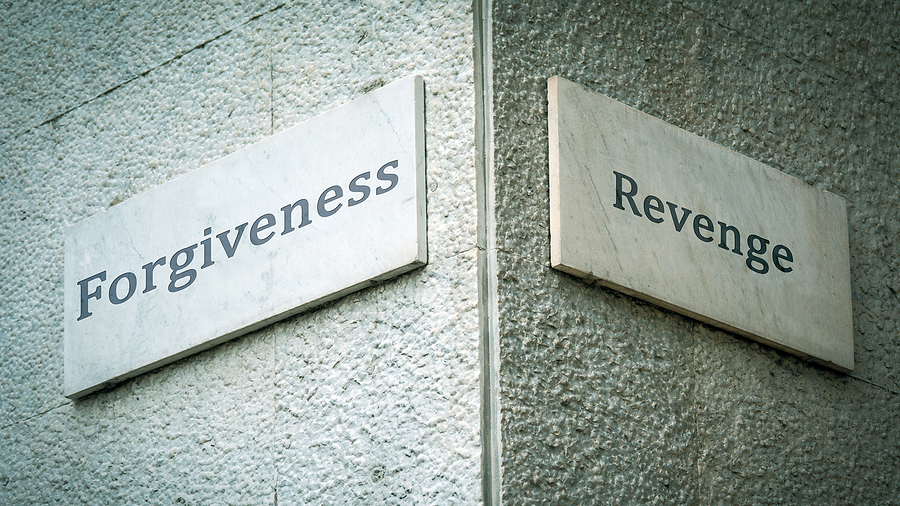
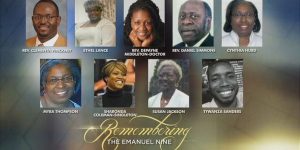
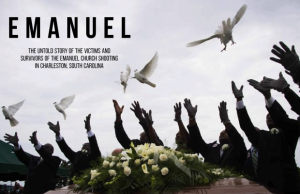
Leave a Comment